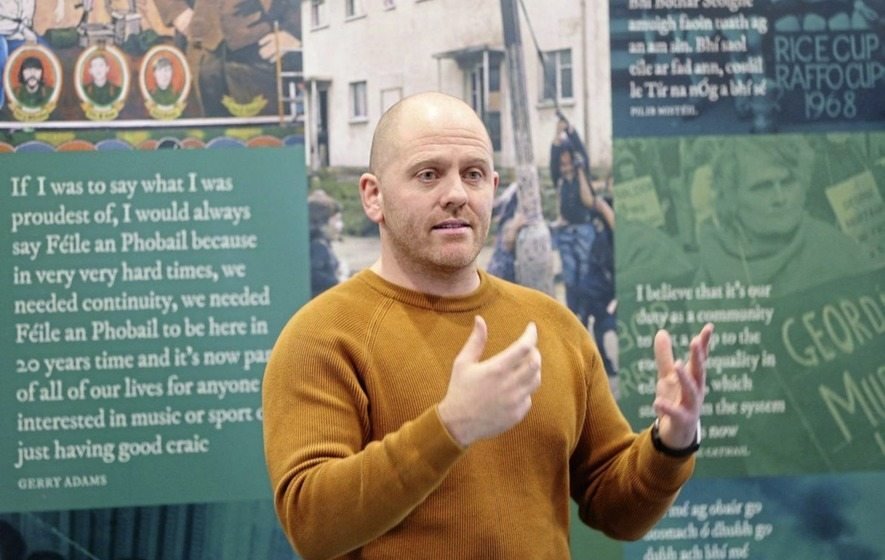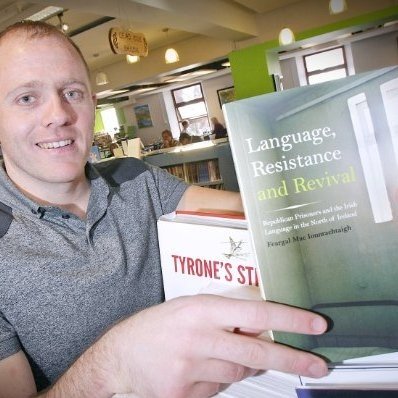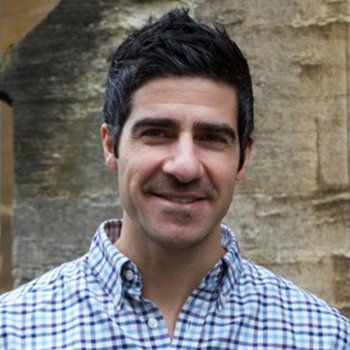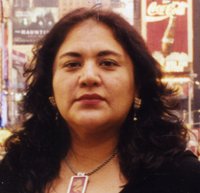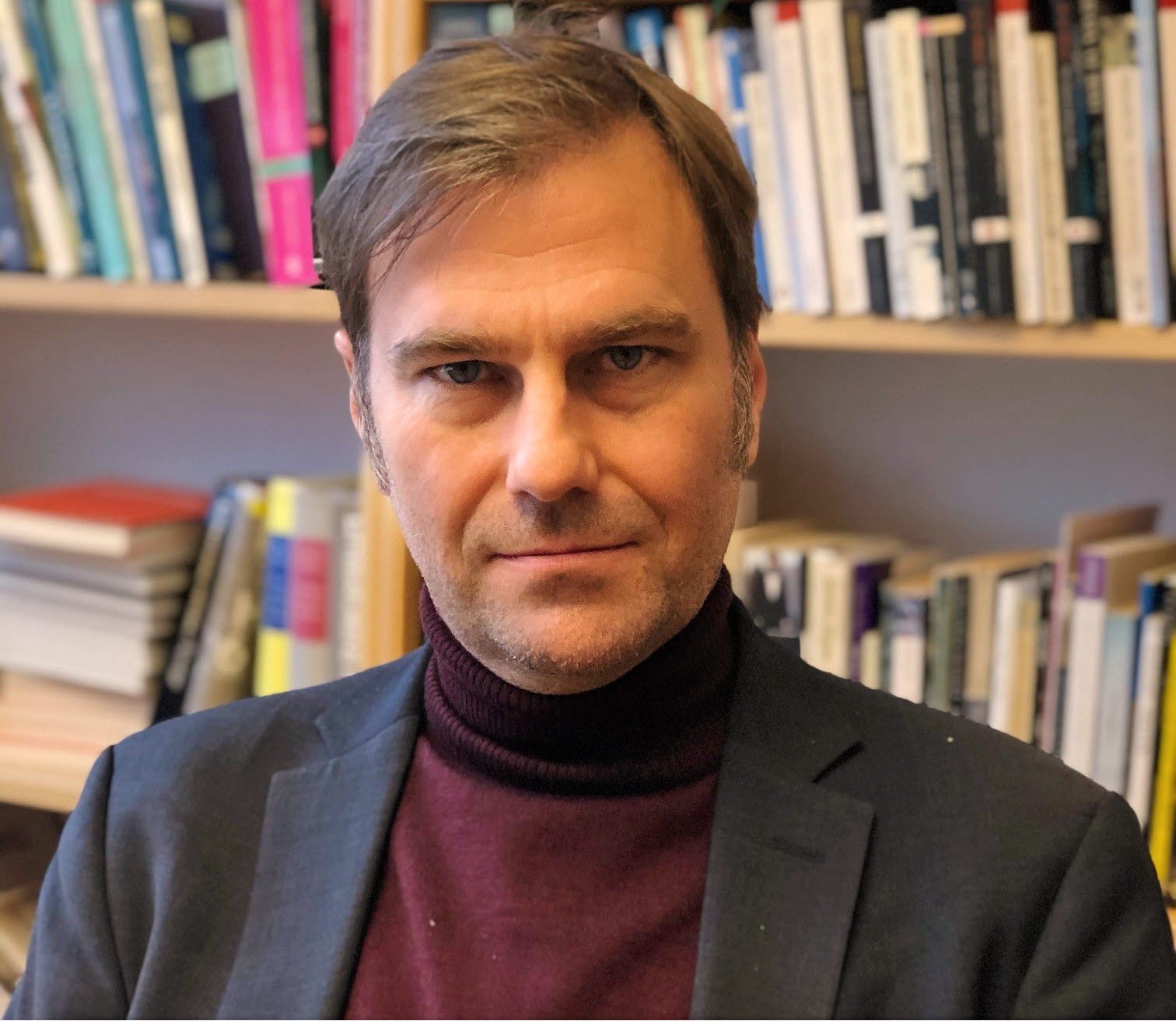PhD Final Seminar
PhD Project: Songing as Epistemic Disobedience: The Resistance and Re-existence of Amhránaíocht in the Irish Struggle for Decolonization-Decoloniality
Candidate: Eoin Ó Cuinneagáin
Discussant: Dr. Feargal Mac Ionnrachtaigh (Queens University Belfast and Glór na Móna language and cultural revitalization centre)
Readers: Dr. Miryam Yataco (National University of San Marcos, Lima Peru) and Dr. Anne Holm (Linnaeus University Centre for Intermedial and Multimodal Studies)
Supervision committee: Dr. Barzoo Eliassi (Linnaeus University), Prof. Madina Tlostanova (Linköping University) and Prof. Lillis Ó Laoire (National University of Ireland, Galway)
Examiner: Dr. Niklas Salmose (Linnaeus University)
Date: 13th of September 2023
Time: 13:15-16:00 CET
Format: Hybrid
Place: Arts and Humanities building, Linnaeus University, Växjö Campus,
Room: Dacke
To request to join seminar remotely: please email eoinocuinneagain@gmail.com with short intro
What is a “PhD final seminar?” In the Swedish doctoral system the final seminar is the last examination in the PhD cycle, the passing of which permits the organisation of the public dissertation defence.
Dr. Feargal MacIonnrachtaigh at Féile an Phobail (above) and with his manuscript, Language, Resistance and Revival (below)
Dr. Feargal Mac Ionnrachtaigh will act as discussant for Eoin Ó Cuinneagáin’s final seminar at Linnaeus university, centre for postcolonial studies, on the 13th of September 2023.
Dr. Miryam Yataco, sociolinguist and indigenous language rights activist, will be joining through zoom as a reader.
Dr. Anne Holm from Linnaeus University Centre for Intermedial and Multimodal Studies (IMS) will join the seminar as a reader.
Eoin Ó Cuinneagáin will present his PhD thesis, “Songing as Epistemic Disobedience: The Resistance and Re-existence of Amhránaíocht in the Irish Struggle for Decolonization-Decoloniality.”
Dr. Feargal Mac Ionnrachtaigh is a former pupil of Bunscoil Phobal Feirste and Meanscoil Feirste in West Belfast. He attended Queens University Belfast and completed his PhD thesis in 2009 on Republican prisoners and the Irish language revival in the North of Ireland, out of which came his highly regarded Language, Resistance and Revival: Republican Prisoners and the Irish Language in the North of Ireland (2013, Pluto Press). His seminal contribution to the volume Fanon Today with ‘Promoting Sedition: The Irish Language Revival in the North of Ireland: Power, Resistance and Decolonization’ connects Fanonian analysis to the Irish language and wider decolonization movement in the occupied 6 counties. He is the director of Glór na Móna language and cultural revitalization centre, a founder-member of Irish-speaking Gaeltacht quarter football club, Laochra Loch Lao CLG, and is active in the Irish language revival in Béal Feirste.
Dr. Miryam Yataco is a Peruvian-born language rights advocate, an expert in bilingualism, and a trained sociolinguist. Her work is rooted in the idea of language rights as human rights. She focuses on language policies & language exclusion and discrimination. Her new research concentrates, on epistemological decolonization and, on Indigenous language policies developing in Latin America.Yataco has worked with Indigenous Congress people in Peru as a consultant and educational program developer and as a congressional assistant in matters of language rights. In 2009, she helped develop a Diplomado (a Certificate Program) on Indigenous Rights and Interculturality for the Indigenous Parliamentary Group within the Peruvian Congress. In 2013-4, she served as a consultant to the Office of Indigenous Languages within Peru’s Vice-Ministry of Intercultural Affairs. She has also been a consultant on language policies to Peru’s Constitutional Tribunal (or Supreme Court).
Dr. Anne Holm earned her PhD at the University of Tampere, Finland in 2014 and has a Postgraduate Certificate in Education in Secondary English from the University of Cumbria. Her research and teaching interests encompass stylistics, Conceptual Metaphor Theory, embodied aspects of reading literature, and applications of Cognitive Grammar to literary analysis. She is currently investigating embodiment in spoken word poetry, with a particular focus on metaphors of displacement. Dr. Holm wrote her doctoral thesis on Dylan Thomas's Poetics of Embodiment at University of Tampere. She has published on ‘The Dynamicity of Construal, Embodied Memory and (Mental) Time Travel in Mohsin Hamid's Exit West’ in the edited volume New Directions in Cognitive Grammar and Style as well as ‘On the "body's absence" : The embodied experience of exile in Joseph Brodsky's "To Urania”’ in the Journal of literary semantics.
Eoin Ó Cuinneagáin has been working on his PhD dissertation for the last five years at Linnaeus University’s centre for postcolonial studies. His thesis advocates for a change in the way Irish language unaccompanied vocal singing is studied-and-practiced. This traditional song practice is known as ‘amhránaíocht’ or ‘sean nós’ within the Irish language, the latter translating to ‘old style’. With respect to the former, Ó Cuinneagáin coins songing as a concept. Its formulation emerged out of conversations on how to translate ‘amhránaíocht’ into Castellano in the context of seminars at the Artistic Studies doctoral program in Universidad Distrital, Bogotá, and into English within anglocentric universities in the Swedish settler-colonial State. Cancionar and songing surfaced in these discussions to denote the onto-epistemic activity and activism that surrounds indigenized Gaelic song practice and its attendant worldview. Cancionar/songing aims at disrupting euro-modern/anglo-modern epistemology and aesthetics, and its universalizing, individualistic notion of singing. Conversely, cancionar/songing implies a collective, ancestral, oral-literary practice that has been a key mechanism of resistance against colonialism-coloniality and essential site for the creation of visions for decolonization-decoloniality in Ireland.
Eoin Ó Cuinneagáin
Dr. Barzoo Eliassi; Prof. Madina Tlostanova
Dr. Miryam Yataco
Dr. Anne Holm
Prof. Lillis Ó Laoire; Dr. Nikas Salmose
